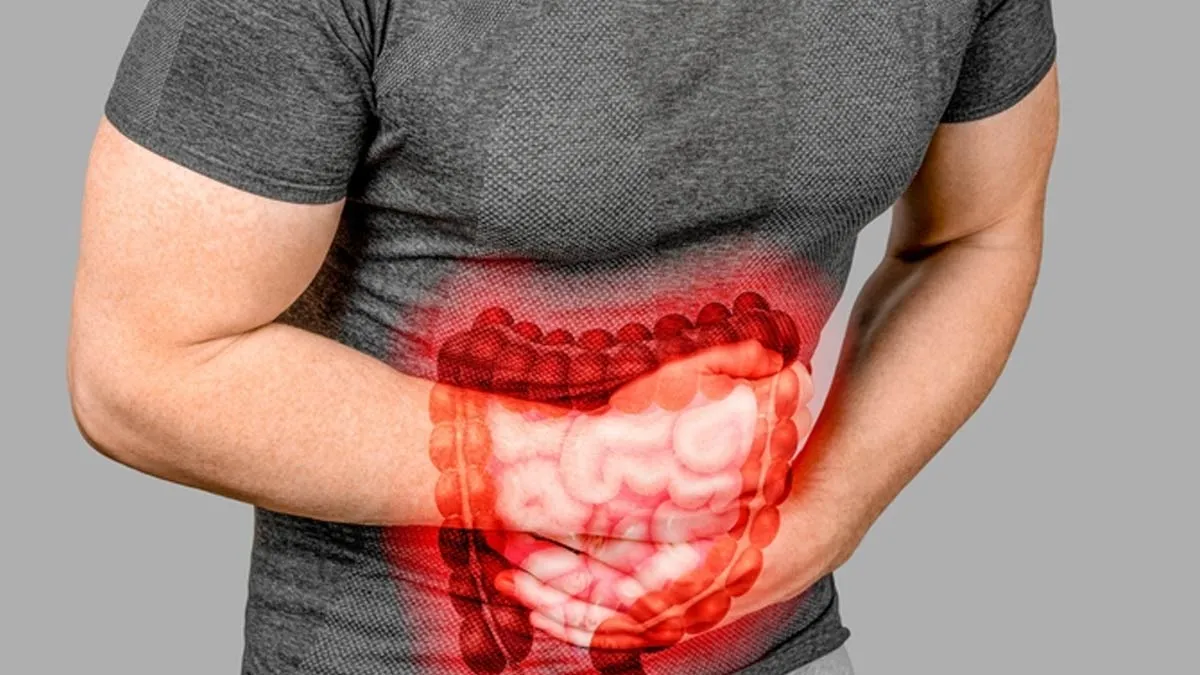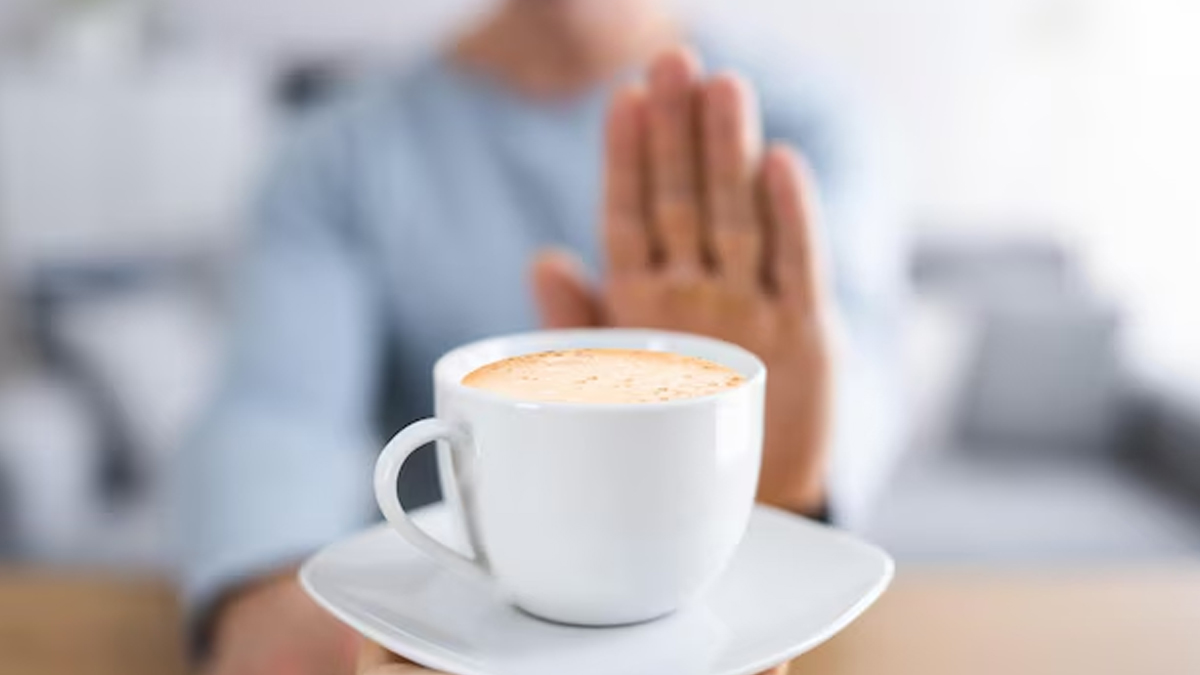
Have you ever had your morning tea or coffee and immediately regretted it with a grumbling stomach or a sudden trip to the loo? For many people living with Irritable Bowel Syndrome (IBS), the beloved ritual of sipping tea or coffee can turn into a gut-wrenching experience. IBS often sneaks into daily life with bloating, cramps, and unpredictable bathroom habits. And while the exact triggers vary from person to person, tea and coffee frequently find themselves on the suspect list. But do they cause trouble, or is it just about how and what we sip?
Table of Content:-
We spoke to Falak Hanif, Nutritionist, Cloudnine Hospitals, Bengaluru, who shared insights on the link between IBS triggers and coffee/tea consumption.
What Is Irritable Bowel Syndrome?

"IBS is a gastrointestinal disorder characterised by abdominal discomfort and bloating that affects millions worldwide and often goes undetected or misdiagnosed. BS is classified into subtypes based on predominant bowel patterns: IBS-D (diarrhoea), IBS-C (constipation), IBS-M (mixed), and IBS-U (unclassified)," said Hanif.
According to a 2014 study, the prevalence of IBS varies depending on the diagnostic criteria used, affecting approximately 11% of the global population. Of those who experience IBS symptoms, about 30% seek medical help. While the abdominal symptoms they experience are not significantly different from those of individuals who do not seek treatment, these individuals report higher levels of anxiety and a diminished quality of life. Worldwide, IBS is diagnosed more in females and has a 25% reduced diagnosis rate in people above 50 years old.
Also Read: IBS Can Be Triggered By THESE Things! Expert Warns To Stay Cautious
Can Coffee and Tea Cause IBS?

Coffee and tea are commonly used beverages with several bioactive substances, such as caffeine and polyphenols which can lead to gastrointestinal (GI) sensitivity and motility. Coffee has caffeine, which is a stimulant for the central nervous system and GI tract. It stimulates colonic motor activity, increases gastric acid secretion, and accelerates orocecal transit.
Potential triggers in coffee include:
- Caffeine: It can stimulate the colon, aggravate bowel movement and lead to diarrhoea and abdominal pain.
- Acidity: The acidic nature of coffee may irritate the gut lining and cause symptoms like heartburn and bloating.
- FODMAP Content: Black coffee which is brewed is low in FODMAPs (Fermentable Oligosaccharides, Disaccharides, Monosaccharides, And Polyols diet ); however, added milk or sweeteners (e.g., lactose, sorbitol) may contribute to symptoms in susceptible individuals.
A 2021 study found that people who consume high amounts of caffeine are more likely to have altered gut microbiomes associated with IBS.
Another 2021 cross-sectional study published in Frontiers in Nutrition, found that consumption of coffee and caffeine was associated with an increased risk of IBS in more than 3,000 Iranian adults who took part in the research.
Should You Quit Coffee or Tea If You Have IBS?
You don't need to stop drinking coffee if you are experiencing discomfort. You can use the following simple steps to consume your coffee without activating IBS.

- Track your symptoms: Listen to your body. Note how you feel after drinking coffee and whether it causes any discomfort with/without whitener/strong black coffee or whether it is any coffee.
- Go Caffeine-free: Try decaf alternatives or herbal coffees and assess how your body responds.
- Limit intake: Reducing the frequency of consumption as anything in excess can have its consequences.
Also Read: Are IBS Symptoms Worse In The Morning? A Gastroenterologist Shares Tips To Reduce Flare-Ups
Tea and IBS
Tea, the most loved beverage of most Indians, comes in many forms, each with its effect on our digestive system.
- Herbal Teas: While some are gentle on the gut, others may irritate it. Therefore, consult with your dietitian first before trying out herbal teas to keep side effects at bay.
- Peppermint oil/tea: Exhibits smooth muscle relaxation through calcium channel blockade; multiple meta-analyses support its efficacy in reducing global IBS symptoms.
- Ginger: This may aid gastric emptying and reduce bloating, with supportive evidence in functional dyspepsia.
- Black Tea and Green Tea: They contain less caffeine than coffee. Some people with sensitive guts get triggered by the consumption of black tea too. It is often considered a diuretic and encouraged to be consumed while constipated.
- Detox teas: These are widely known and encouraged to be consumed as they are believed to cleanse the body. However many people face diarrhea after consuming them as they can contain laxatives or stimulants that can aggravate symptoms.
Bottomline
Hanif concluded, "Tea and coffee may contribute to IBS symptoms in some individuals, primarily due to their caffeine content and other active compounds that affect gut function. However, sensitivity varies widely. Many people with IBS can still enjoy these beverages in moderation, especially when opting for decaffeinated or herbal varieties and avoiding problematic additives like milk or artificial sweeteners. Identifying personal triggers through mindful consumption and professional guidance is essential for effective IBS management."
[Disclaimer: This article contains information provided by an expert and is for informational purposes only. Hence, we advise you to consult your professional if you are dealing with any health issue to avoid complications.]
Also watch this video
How we keep this article up to date:
We work with experts and keep a close eye on the latest in health and wellness. Whenever there is a new research or helpful information, we update our articles with accurate and useful advice.
Current Version
